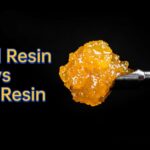Everything you need to know about the Benefits of CBN for sleep, pain, anxiety more, including a handy CBN benefits chart for easy dosage guidelines – see if this emerging cannabinoid is right for you!

Cannabinol (CBN) is emerging as an intriguing cannabinoid in the hemp wellness space. As interest in rare hemp compounds grows, many are starting to wonder – what exactly are the benefits of CBN?
In this ultimate guide, we’ll explore what is known so far about this lesser-known cannabinoid.
Contents
What is CBN?
CBN is a metabolite of tetrahydrocannabinol (THC), the main psychoactive component of cannabis. As cannabis plants age and are exposed to oxygen, THC slowly converts into CBN.
Unlike THC, CBN is non-intoxicating. Initial research shows CBN interacts with the body’s endocannabinoid system in a similar manner to CBD and THC, potentially offering therapeutic effects.
The benefits of cbn
So far, most evidence on CBN is limited to preclinical animal research and small pilot studies. However, the early results are promising. Here’s what the science says so far about the key benefits of CBN:
1. Promotes Sleep
One of the main reasons people use CBN is to promote healthy sleep.
In one 1975 study on mice, CBN prolonged sleep times. It’s believed CBN helps regulate the sleep-wake cycle by interacting with CB1 receptors. Anecdotally, many hemp users also choose aged, CBN-rich cannabis flower to support sleep.
However, CBN may not directly induce drowsiness alone. According to prominent cannabis researcher Dr. Ethan Russo, CBN displays sedative qualities mainly in combination with THC and certain terpenes.
The takeaway: While CBN shows promise for improved sleep, robust clinical evidence is still lacking. Most experts recommend using full or broad-spectrum CBN extracts over isolates for best effects.
2. Relieves Pain
Early research also indicates CBN may relieve pain and reduce inflammation.
For example, one study on rats found CBN reduced pain sensitization on its own and displayed even more powerful painkilling effects when combined with THC.
Researchers believe CBN influences pain perception by interacting with CB1 and CB2 receptors involved in managing pain signals. It may also provide targeted relief from chronic nerve and joint pain.
3. Suppresses Muscle Spasms
In addition to dulling pain, CBN may also minimize muscle spasms and tremors – similar to THC and CBD.
In a mouse study, CBN extended the amount of time mice were able to walk on a rotating rod without falling. The findings suggest possible applications as supplemental treatment for muscle spasticity related to conditions like multiple sclerosis.
4. Reduces Inflammation
Chronic inflammation is at the root of many modern diseases. Research shows CBN triggers an anti-inflammatory response similar to other cannabinoids.
Specifically, CBN appears to act on CB2 receptors concentrated in the immune system to reduce excessive inflammatory signals. The potential applications of CBN’s anti-inflammatory effects are wide-ranging – from inflammatory bowel disease to rheumatoid arthritis.
5. Inhibits Bacterial Growth
Interestingly, CBN also demonstrates natural antibiotic qualities. Recent test-tube research found CBN stopped methicillin-resistant Staphylococcus aureus (MRSA) infections from spreading.
MRSA bacteria are resistant to several antibiotics and potentially lethal if they spread to vital organs. As antibiotics become less effective against resistant superbugs, CBN presents a promising natural alternative.
6. Protects Nerve Cells
CBN also helps keep brain cells healthy by reducing naturally occurring cell death. These neuroprotective effects may prove valuable in the treatment of neurodegenerative conditions like ALS and Huntington’s disease.
Additionally, an early study by biotech company InMed Pharmaceuticals found that topical CBN protected retinal cells in the eye and minimized ocular pressure – potentially benefiting treatment for glaucoma.
Is CBN Legal?
CBN’s legal status depends on its source. As a marijuana derivative, CBN directly extracted from cannabis plants falls into a legal gray area.
However, CBN derived from federally legal hemp containing less than 0.3% THC is permissible under the 2018 Farm Bill. As of now, most CBN supplements available online are sourced from legal hemp.
How to Take CBN
CBN supplements are available in various forms:
- Oils and tinctures: Offer easy dose customization but often have an earthy taste. Effects kick in within 15 minutes.
- Capsules and gummies: Contain premeasured CBN doses, albeit less adjustable. Onset is about 45 minutes to 1 hour.
- Topicals: Applied directly on skin and muscles for targeted relief. Do not produce whole-body effects.
We recommend starting with a low CBN dose of around 2-6mg and increasing slowly as needed.
Refer to the CBN dosage chart below based on your weight and desired effects:
Here is the table converted to HTML format:| Goal | Body Weight < 150 lbs | Body Weight 150-200 lbs | Body Weight > 200 lbs |
|---|---|---|---|
| Sleep Support | 5-10mg | 10-15mg | 15-20mg |
| Anxiety Relief | 5-10mg | 10-15mg | 15-20mg |
| Pain Relief | 10-15mg | 15-20mg | 20-30mg |
Combining CBN with Other Cannabinoids
Early research shows CBN works best alongside other hemp compounds like CBD and minor cannabinoids compared to pure isolates. This phenomenon is called the “entourage effect.”
The most prominent cannabis researcher in the U.S., Dr. Ethan Russo, concludes the sedative benefits mainly occur when CBN is consumed with THC-containing cannabis.
To leverage the entourage effect, we recommend using full or broad-spectrum CBN extracts over isolates. Broad-spectrum products contain a variety of cannabinoids except for THC, making them non-intoxicating and accessible to more users.
The Botton Line
As we’ve explored, the rare cannabinoid CBN shows intriguing potential for improving sleep quality, relieving pain, reducing inflammation, and protecting brain cells based on preliminary research.
While more robust clinical studies are still needed, current evidence and anecdotal accounts indicate CBN may offer unique therapeutic properties compared to more common cannabinoids like CBD and THC.
Start slow with low CBN doses and give your body time to adjust when supplementing. Combining CBN with other cannabis compounds can further heighten benefits as well. We hope this guide has shed light on this emergent cannabinoid and how it may support wellness goals.
Please leave any questions or experiences with CBN in the comments below! Our team would be happy to offer guidance to help you determine if CBN supplementation is right for your needs.
FAQS
What does CBN do to the brain?
CBN interacts with CB1 receptors concentrated in the central nervous system, similar to THC. However, it does not bind strongly enough to these receptors to cause intoxicating effects. Early research indicates CBN may protect brain cells by reducing naturally occurring cell death. It shows potential for treating neurodegenerative conditions like ALS and Huntington’s disease.
Is CBN anti-inflammatory?
Yes, preliminary research suggests CBN has anti-inflammatory properties. Studies show CBN triggers an anti-inflammatory response by acting on CB2 receptors concentrated in the immune system. This mechanism resembles the effects of other cannabinoids like CBD and THC. The potential applications of CBN’s anti-inflammatory qualities are wide-ranging, from IBD to arthritis.
How much CBN should you take at night?
Most experts recommend starting with a low CBN dose of 2-6mg for sleep support and slowly increasing every few nights as needed. Refer to the below dosage chart based on your weight as an initial guideline:
– Less than 150 lbs: 5-10mg
– 150-200 lbs: 10-15mg
– Over 200 lbs: 15-20mg
Keep in mind that individual responses vary widely. It’s best to start low and find the optimal dosage that works for your needs.






